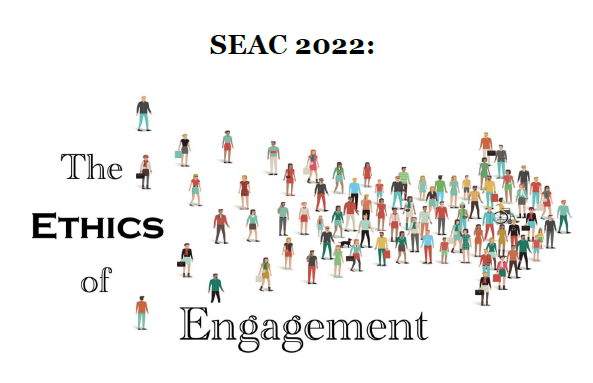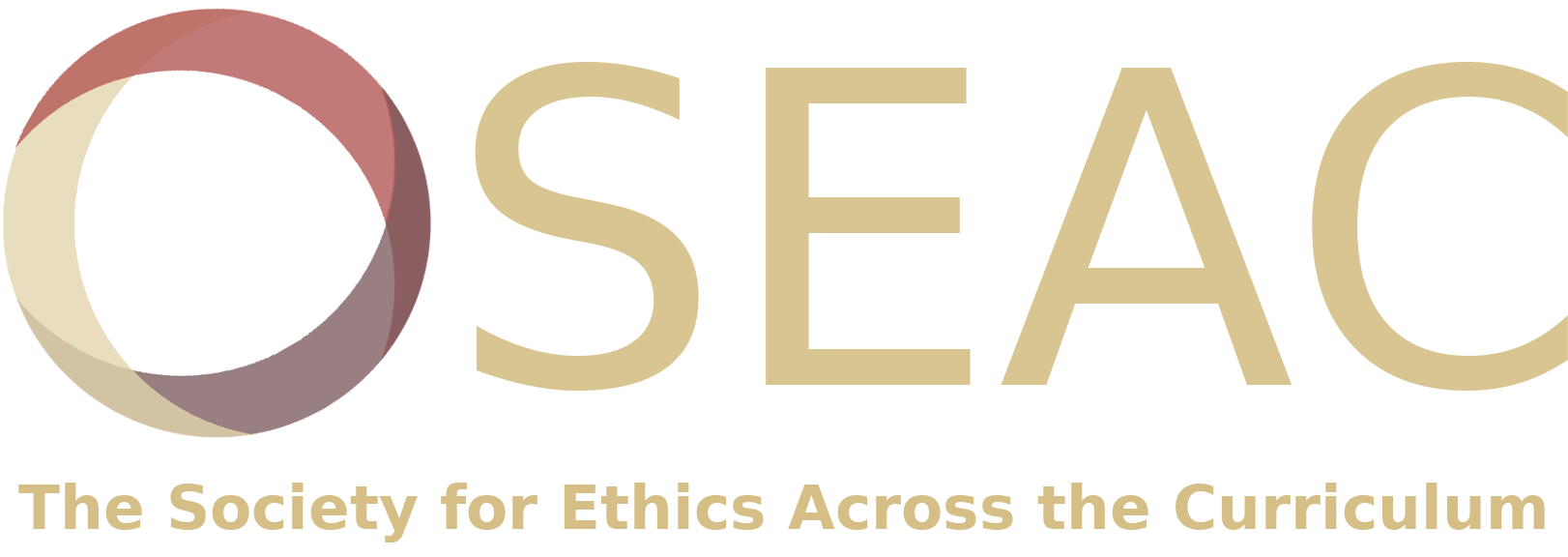
Concurrent Session 4B
Location
Ford Ballroom B, The Inn at Ole Miss
Start Date
7-10-2022 9:00 AM
End Date
7-10-2022 10:45 AM
Description
- Transgressive Teaching Without Dogmatic Teaching / Joel Ballivian, University of Wisconsin Madison
One of the primary goals of transgressive teaching (hooks, 1994) is to create a learning experience that awakens students to oppressive realities and empowers them to respond subversively to these realities. This approach can be contrasted with the “critical thinking first” approach (CTF) according to which the primary aim of a class (especially a humanities class) is to “teach students how to think, not what to think.” CTF aims for stance-neutrality and recommends that teachers avoid structuring courses that overtly encourage students to adjust their views or lifestyle on substantive moral and political issues. In fact, it is common for proponents of CTF to argue that transgressive teaching and related approaches elide these pedagogical values by being insufficiently stanceneutral and overly pushy. In this paper, I explain how transgressive teaching can take steps toward ameliorating these worries––what I’ll call “worries about dogmatism." To this end, I argue that there are different worries about the alleged dogmatism of transgressive teaching. Some of these worries are legitimate and ought to guide the way we structure transgressive learning environments in philosophy, but I argue that a robust form of transgressive teaching can nevertheless survive these concerns. - CRISPR and Gene Drives: Ethical and Anticipated Ethical Issues / Richard Wilson, Towson University; Michael Nestor, Independent Scholar
Science denial has a long history of causing harm in contemporary society when ignored. Recent discussions of science denial suggest that correcting people’s false beliefs rarely has an impact on eliminating the adherence to false beliefs and assumptions, which is called the backfire effect. The use of epistemic understanding of knowledge production in science with a focus on avoiding the backfire effect may increase the potential for science education research to produce fruitful strategies which advance students’ attitudes toward science and deepen students’ understanding of how science works through divergent perspectives. There are some areas that need to be focused on and investigated for their potential to combat science denial and the backfire effect while foregrounding the role(s) epistemic understanding of knowledge production for science instruction. Emerging technologies are technologies whose development, practical applications, or both are still largely unrealized, such that they are figuratively emerging into prominence from a background of nonexistence or obscurity. These technologies are generally new but also include older technologies. Emerging technologies are often perceived as capable of changing the status quo. This analysis is aimed at discussing issues related to The Denial of Science, Emerging Technologies, and Stakeholder Engagement with a focus on the Ethical and Anticipated Ethical Issues. The aim is to identify strategies of engagement in order to overcome the denial of science. - Foisting responsibility: The Boeing 737 MAX / Wade Robison, Rochester Institute of Technology
Children learn early on that one way to avoid punishment is to blame someone else. Corporations are adept at foisting responsibilities on others, partly to avoid legal liability, partly to avoid bad publicity. Boeing did this with the two 737 MAX crashes that killed over 346. They blamed the pilots, saying, in effect, that had they been competent, the crashes would not have happened. It is an ethical fault if you fail to take responsibility for harm you cause and ethically worse to deflect responsibility by blaming someone else. Corporations that cry “Operator error!” after an incident involving their products are guilty of this double ethical fault when their products caused or contributed to the harms. Worse, in deflecting blame, they risk more harms by not examining and fixing what it was about their products that contributed to the harms. A careful examination of the changes Boeing made for the 737 MAX because they put larger engines on the original 737 structure shows that any pilot would have been hard-pressed to avoid a crash—as Boeing should have known because one of its own test pilots took over 10 seconds to respond despite knowing of the changes that Boeing kept from everyone else.
Session Chair: Timothy Yenter, University of Mississippi
Relational Format
conference proceeding
Recommended Citation
Ballivian, Joel; Wilson, Richard; Nestor, Michael; Robison, Wade; and Yenter, Timothy, "Concurrent Session 4B" (2022). Society for Ethics Across the Curriculum Conference. 23.
https://egrove.olemiss.edu/seac/2022/schedule/23
COinS
Oct 7th, 9:00 AM
Oct 7th, 10:45 AM
Concurrent Session 4B
Ford Ballroom B, The Inn at Ole Miss
- Transgressive Teaching Without Dogmatic Teaching / Joel Ballivian, University of Wisconsin Madison
One of the primary goals of transgressive teaching (hooks, 1994) is to create a learning experience that awakens students to oppressive realities and empowers them to respond subversively to these realities. This approach can be contrasted with the “critical thinking first” approach (CTF) according to which the primary aim of a class (especially a humanities class) is to “teach students how to think, not what to think.” CTF aims for stance-neutrality and recommends that teachers avoid structuring courses that overtly encourage students to adjust their views or lifestyle on substantive moral and political issues. In fact, it is common for proponents of CTF to argue that transgressive teaching and related approaches elide these pedagogical values by being insufficiently stanceneutral and overly pushy. In this paper, I explain how transgressive teaching can take steps toward ameliorating these worries––what I’ll call “worries about dogmatism." To this end, I argue that there are different worries about the alleged dogmatism of transgressive teaching. Some of these worries are legitimate and ought to guide the way we structure transgressive learning environments in philosophy, but I argue that a robust form of transgressive teaching can nevertheless survive these concerns. - CRISPR and Gene Drives: Ethical and Anticipated Ethical Issues / Richard Wilson, Towson University; Michael Nestor, Independent Scholar
Science denial has a long history of causing harm in contemporary society when ignored. Recent discussions of science denial suggest that correcting people’s false beliefs rarely has an impact on eliminating the adherence to false beliefs and assumptions, which is called the backfire effect. The use of epistemic understanding of knowledge production in science with a focus on avoiding the backfire effect may increase the potential for science education research to produce fruitful strategies which advance students’ attitudes toward science and deepen students’ understanding of how science works through divergent perspectives. There are some areas that need to be focused on and investigated for their potential to combat science denial and the backfire effect while foregrounding the role(s) epistemic understanding of knowledge production for science instruction. Emerging technologies are technologies whose development, practical applications, or both are still largely unrealized, such that they are figuratively emerging into prominence from a background of nonexistence or obscurity. These technologies are generally new but also include older technologies. Emerging technologies are often perceived as capable of changing the status quo. This analysis is aimed at discussing issues related to The Denial of Science, Emerging Technologies, and Stakeholder Engagement with a focus on the Ethical and Anticipated Ethical Issues. The aim is to identify strategies of engagement in order to overcome the denial of science. - Foisting responsibility: The Boeing 737 MAX / Wade Robison, Rochester Institute of Technology
Children learn early on that one way to avoid punishment is to blame someone else. Corporations are adept at foisting responsibilities on others, partly to avoid legal liability, partly to avoid bad publicity. Boeing did this with the two 737 MAX crashes that killed over 346. They blamed the pilots, saying, in effect, that had they been competent, the crashes would not have happened. It is an ethical fault if you fail to take responsibility for harm you cause and ethically worse to deflect responsibility by blaming someone else. Corporations that cry “Operator error!” after an incident involving their products are guilty of this double ethical fault when their products caused or contributed to the harms. Worse, in deflecting blame, they risk more harms by not examining and fixing what it was about their products that contributed to the harms. A careful examination of the changes Boeing made for the 737 MAX because they put larger engines on the original 737 structure shows that any pilot would have been hard-pressed to avoid a crash—as Boeing should have known because one of its own test pilots took over 10 seconds to respond despite knowing of the changes that Boeing kept from everyone else.
Session Chair: Timothy Yenter, University of Mississippi


